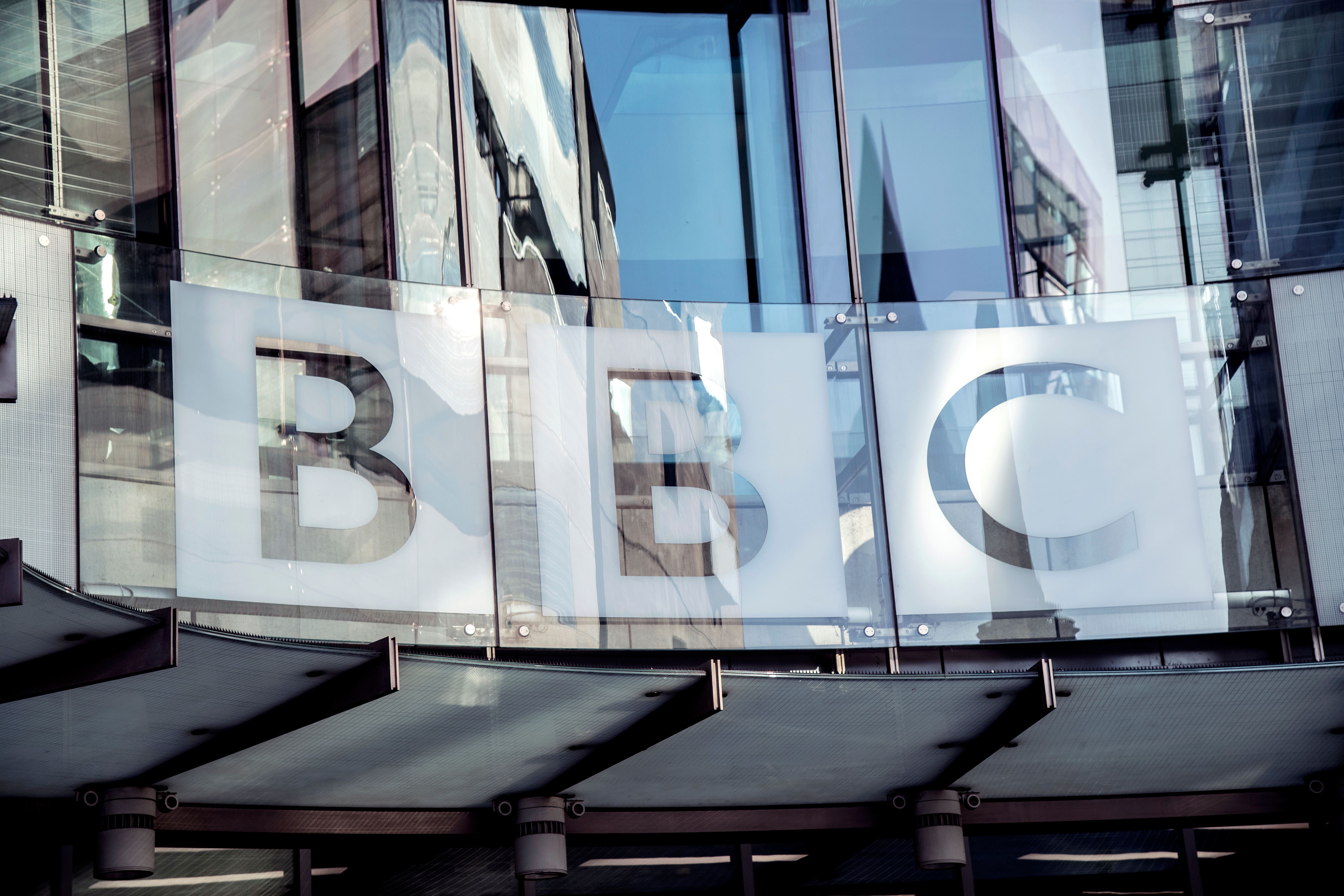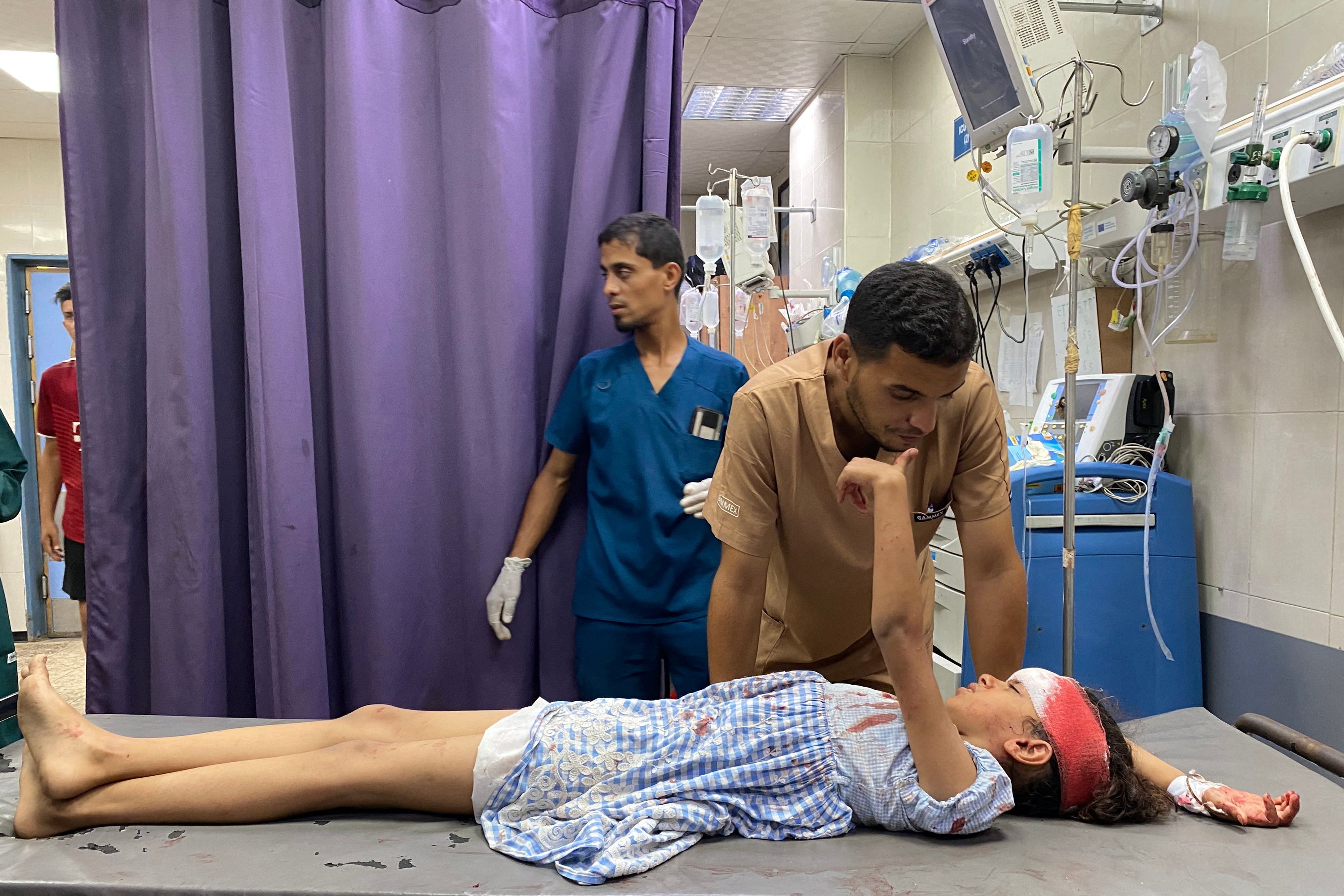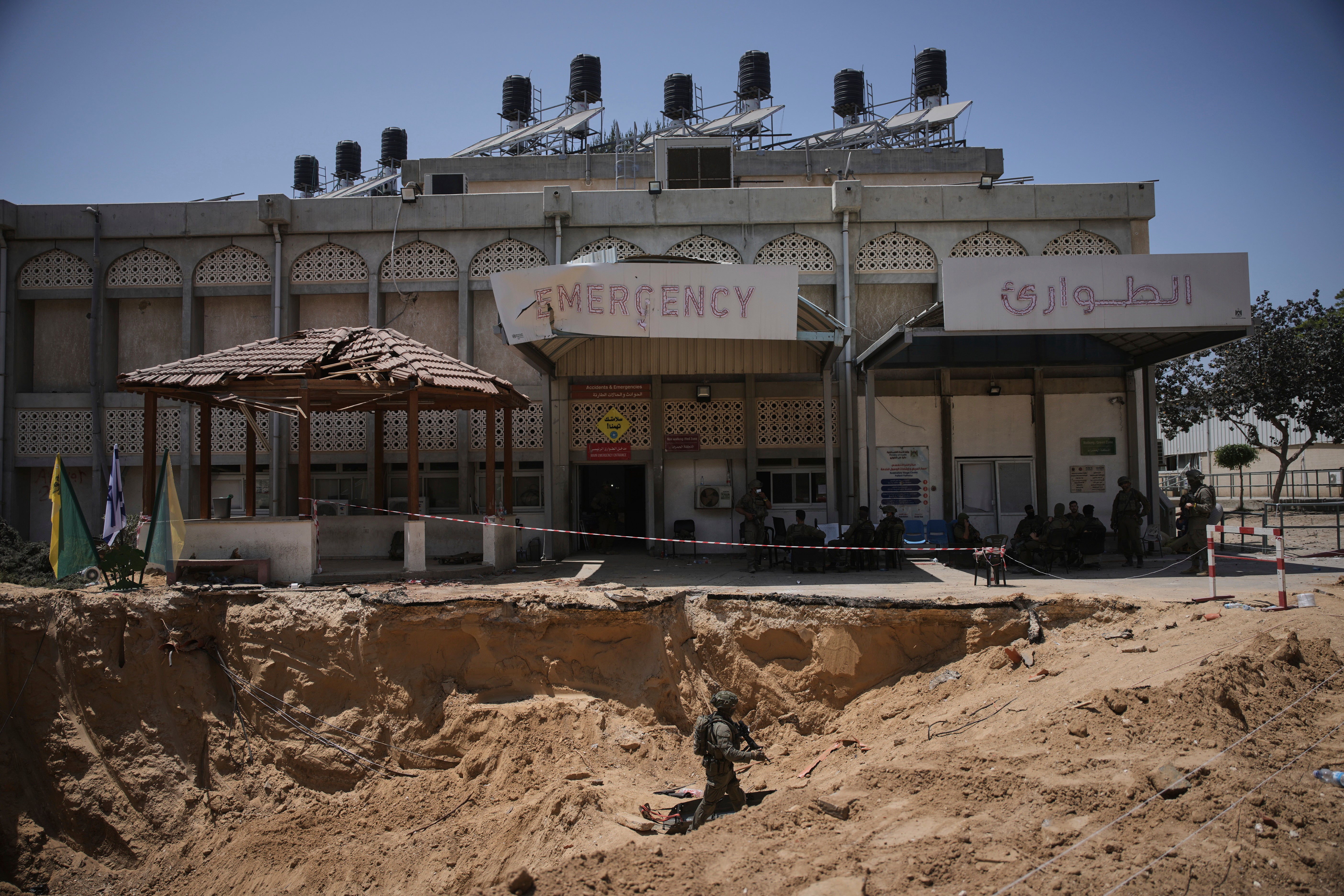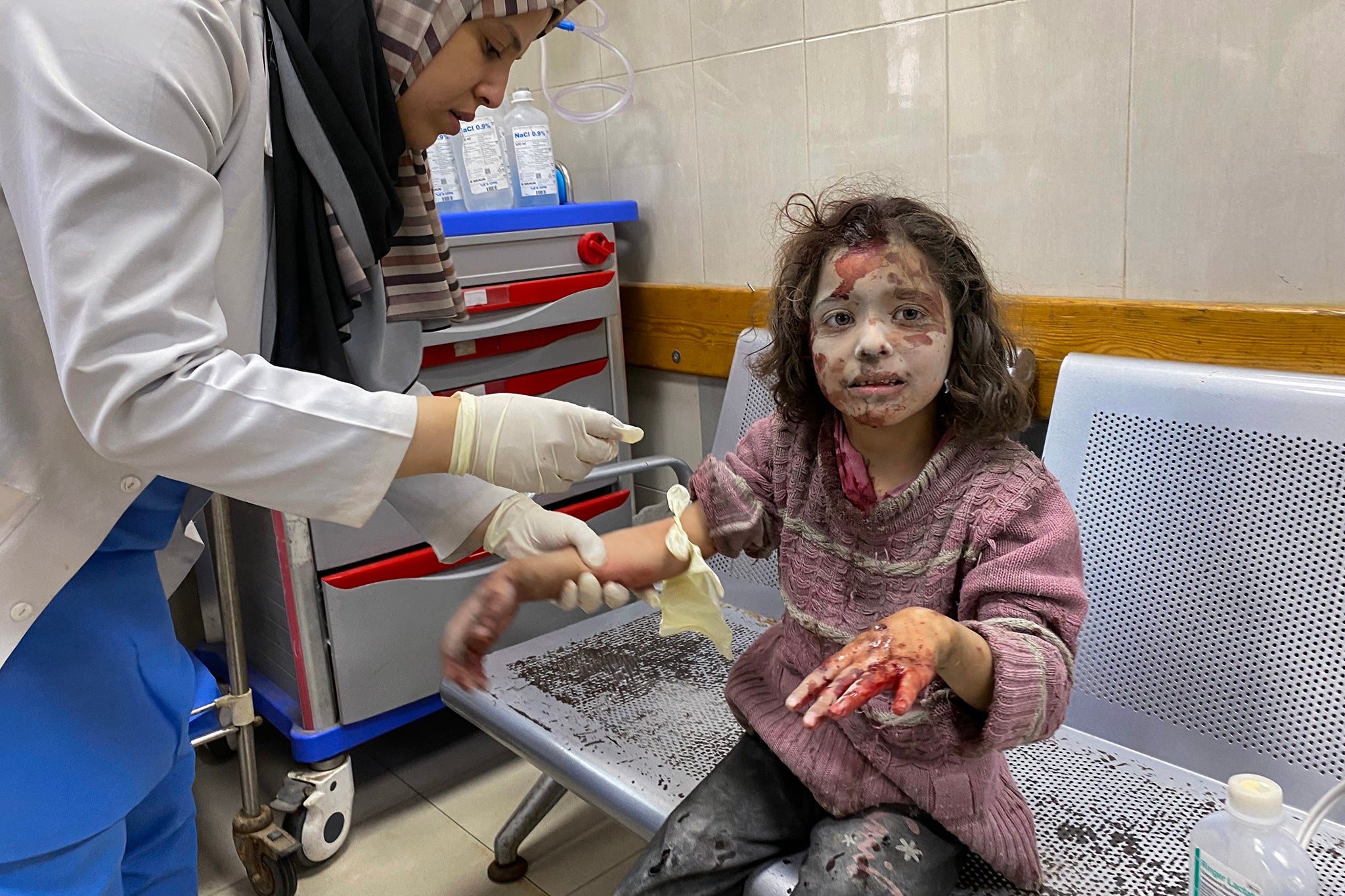Proudly announcing the documentary Gaza: Doctors Under Attack, Channel 4’s head of news and current affairs said the film was “harrowing”, and would “make people angry”.
In a lengthy statement, Louise Compton said the television channel had decided it was an important story to air.
“We are showing this programme because we believe that, following thorough fact-checking and verification, we are presenting a duly impartial view of a subject that both divides opinion and frequently provokes dispute about what constitutes a fact.”
But this distressing film has become famous for all the wrong reasons before even a moment was broadcast.
For it was not originally made for Channel 4, but rather the BBC. And it came close to not being seen on British TV at all after months of delays, acrimonious negotiations and concerns over partiality.
The documentary, made by Basement Films, was commissioned and paid for by the BBC, whose programming directors initially agreed it was an important story, a person close to the film told The Independent.
“We have emails telling us that this is an important, powerful piece of journalism and needs to be told in the public interest. So then, mysteriously, suddenly, it can't be told,” they said.

The source said at least six different transmission dates were given through January and February, but it kept getting pushed back.
The documentary team thought the BBC was delaying while it waited for Ofcom’s report from Peter Johnston on an earlier programme Gaza: How To Survive A Warzone, but said the BBC kept saying that was not the case.
“They kept coming up with just bulls***t reasons,” the source added, which included rechecking pictures and asking for additional fact checks.
Later, the BBC apologised and said all films on Israel and Palestine would have to wait until after the Johnston report was released. Despite this, the Louis Theroux film on the West Bank was aired in May.
Meanwhile, the documentary makers were anxious about getting the film out, firstly because it was a timely war crimes investigation, but also because they had a duty of care to the people who had helped them tell the story.
“One of the Israeli whistleblowers was really, really upset by this,” the source said.

Eventually in April, the BBC decided they would not broadcast the film in documentary form and said it wanted to break up the interviews and use them in different ways. They would release the documentary back to the filmakers.
But this process was not straightforward. What followed, the source said, was about six or seven weeks of intense negotiations involving lawyers about where and how the film could be aired. A major sticking point for the documentary team was a gag clause preventing them discussing the protracted negotiations with the BBC.
Then, on 20 June, the BBC released a statement confirming they were not airing the film and went on to suggest there may be an issue of impartiality in the film.
"For some weeks, the BBC has been working with Basement Films to find a way to tell the stories of these doctors on our platforms,” it said.
"Yesterday, it became apparent that we have reached the end of the road with these discussions. We have come to the conclusion that broadcasting this material risked creating a perception of partiality that would not meet the high standards that the public rightly expect of the BBC."

BBC News duly reported that sources said the decision came after separate public comments from Basement Films’s Ben De Pear at the Sheffield Documentary Festival, and reporter and the film’s co-executive producer Ramita Navai, who discussed Gaza in an interview on Radio 4's Today programme.
In that interview, Navai said that Israel had "become a rogue state that's committing war crimes and ethnic cleansing and mass murdering Palestinians".
De Pear had made reference to journalists being “stymied and silenced”.
The documentary film was dumbfounded. But with the film finally being dropped by the BBC, they team was free to place it elsewhere. Within a week, Channel 4 had moved in to pick it up.
Compton, as head of Channel 4’s news and current affairs, said the documentary “offers powerful evidence that the doctors, nurses and paramedics of Gaza have been denied the non-combatant protection that the norms of warfare usually offer them”.

She added that it was the job of journalists to the the stories people need to know, which sometimes, are stories some would prefer remained unheard.
“But while we would never judge anyone who decides that showing something could create a risk of being thought to be taking sides, we believe there are times when the same risk is run by not showing anything at all.”
In a statement, Navai said the team had worked for over a year with human rights groups and healthcare workers who had “forensically collected evidence of Israeli war crimes”.
“Our interviews with Palestinian doctors and healthcare workers who have been targeted by Israel, and with Israeli whistleblowers, show that Israel’s targeting of healthcare workers is systematic and deliberate, and part of their effort to “destroy” and “flatten Gaza and to ethnically cleanse it, as Israeli ministers have themselves been saying.
She continued: “This film is important not only as a record of Israeli war crimes, but also because it has exposed the agenda of the BBC when it comes to reporting on Israel and Palestine - for these reasons, it’s probably one of the most important documentaries I’ve ever made.”
The documentary Gaza: Doctors Under Attack airs on Channel 4 at 10pm on 2 July.
Poll shows majority of voters worry Trump policies will harm US in long run
Australia cancels rapper Ye's visa over 'Heil Hitler' release
Inside Trump’s Gaza truce deal between Israel and Hamas
Air defense missiles among weaponry US is withholding from Ukraine, AP sources say
If Trump wants to earn the Nobel Peace Prize, he needs to get a grip on Israel


.png?w=600)




